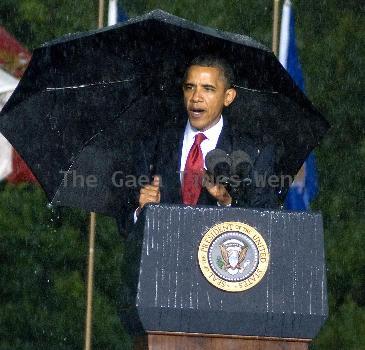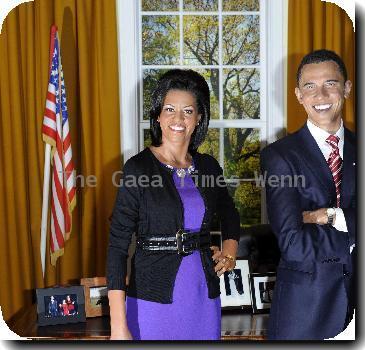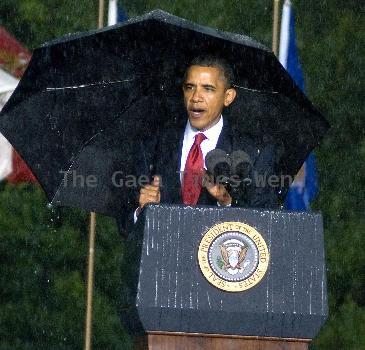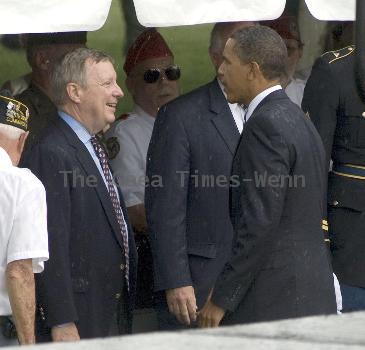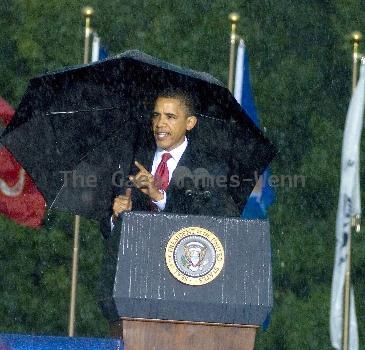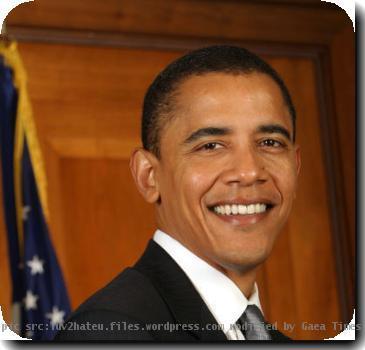Defense Secretary Gates in Iraq to meet with US troops as they end combat mission
By Anne Gearan, APTuesday, August 31, 2010
Gates arrives in Iraq as combat mission ends
RAMADI, Iraq — Defense Secretary Robert Gates said Wednesday that while the United States is no longer at war in Iraq, history will judge whether the fight was worth it.
The Pentagon chief met with troops at Camp Ramadi just a few hours after President Barack Obama declared an official end to the U.S. combat role in Iraq and told Americans it was time to “turn the page.”
Asked whether the U.S. was still at war in Iraq, Gates answered succinctly, “I would say we are not.”
He was less direct when asked whether the war was worthwhile, saying that will depend in part on whether Iraq emerges as a democratic anchor in the Middle East.
That judgment “really requires a historian’s perspective,” Gates said.
“I believe our men and women in uniform believe we have accomplished something that makes the sacrifice, the bloodshed, not to have been in vain,” he said. “How it all weighs in the balance remains to be seen.”
“The problem with this war, I think, for many Americans, is that the premise on which we justified going to war turned out not to be valid,” Gates added. “Even if the outcome is a good one from the standpoint of the United States, it’ll always be clouded by how it began.”
Ramadi, home of one of the U.S. military’s new advisory brigades, is in the heart of Anbar province, the cradle of the Sunni insurgency against the initial U.S. occupation.
Gates said Anbar holds a special and haunting significance for the U.S. military. Several members of his staff were wounded or saw their comrades killed in the province during the worst years of the fighting.
The difference between that time and now was illustrated by the questions soldiers asked the secretary. Some of their top concerns included health care, retirement and the state of combat pay now that the combat mission is officially over.
One soldier asked whether the U.S. might maintain a military presence in Iraq after 2012, when all U.S. forces are due to leave by agreement with the Iraqi leadership.
“Any such proposal would have to be at the initiative of the new Iraqi government,” Gates replied. “We would obviously be willing to look at that.”
He emphasized that the U.S. is still waiting for the formation of that new government before that idea can even be broached.
After his session with the troops, Gates flew to Baghdad for meetings with Gen. Ray Odierno, the outgoing commander of U.S. forces in Iraq, and his successor, Lt. Gen. Lloyd Austin.
Fewer than 50,000 U.S. troops remain in Iraq, down from more than 165,000 at the height of the fighting. The remaining forces’ primary role is to help train and equip Iraqi forces over the next year.
Lt. Col. Buddy Houston, deputy brigadier commander of the 4/3 Advise and Assist Brigade in Ramadi, said there have been no incidents in the last 14 months where Iraqis asked for direct combat help.
“I can’t imagine a violent situation where we would have to go back in and re-engage,” Houston said.
He added that he didn’t anticipate, “even under the worst-case scenario,” that a civil war could break out in Iraq as U.S. troops leave.
